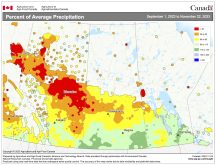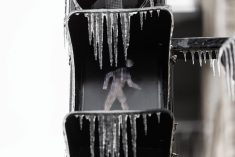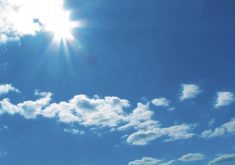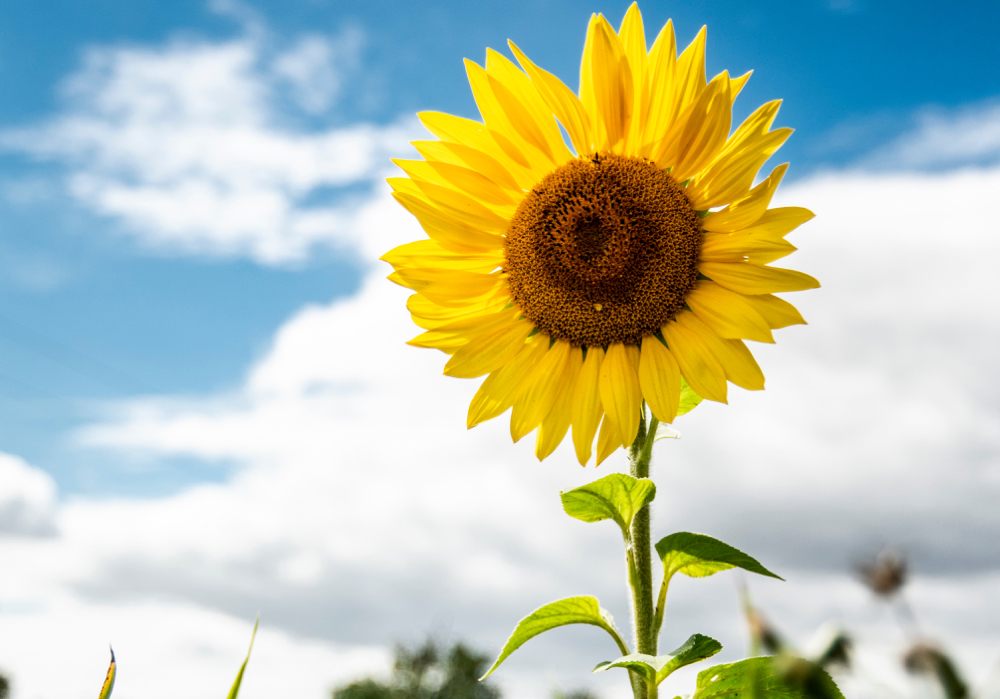Dave Phillips may be the most likable prophet of doom this country has ever seen.
The avuncular Environment Canada climatologist used his latest visit to Winnipeg to once again warn that climate change is here and we’re all going to pay the price.
But where others focus on blame and pain, Phillips peppered his remarks to a gathering of disaster management officials with the common-sense advice that is also one of his trademarks.
“Disaster is a growth industry,” Phillips said in his presentation before citing a list of recent weather calamities — Manitoba’s flooding woes (including five floods in a 15-month period in places such as Peguis First Nation), the “weather bomb” in 2010 that created hurricane-force winds and massive bank erosion on Lake Winnipeg, and how the rare has become commonplace. Nova Scotia, he noted, had three “one-in-50-year events” in 2004 alone, including a hurricane and a chest-high, 88-centimetre snowfall. In the last decade, Canada has broken or tied 16 records for high temperatures – but hasn’t set one for low temperatures for 96 years.
Read Also

Thunderstorms and straight-line winds
Straight-line winds in thunderstorms can cause as much damage as a tornado and are next on our weather school list exploring how and why severe summer weather forms.
“It’s almost as if we’re in nature’s crosshairs,” he said.
And we’re watching the weather as never before, he added.
Social media is filled with chatter and cellphone pics and video of extreme weather and the traditional news outlets turn into “atmospheric paparazzi” when Mother Nature unleashes her fury.
But increased public awareness has not yet translated into changed behaviour — and that needs to occur, he said.
Even though “there’s no question about it, the world is warmer now,” people continue to act as if the climate hasn’t changed, he said.
For example, one-third of the world’s population lives within 100 kilometres of an ocean, which puts them at extreme risk.
“It’s a graveyard waiting to happen,” said Phillips.
In the heart of the continent, more people are choosing to live along lakes and rivers, despite the increasing frequency of flooding.
And greater urbanization means severe weather can strike more people at once than ever before.
“When you bring people into communities, into cities, they think, ‘Whew, nature can’t find me here’ — but when it does, it’s a catastrophe,” he said.
Even the choices we make in our own homes suggest most people are ignoring the implications that climate change has for them. No longer are basements the refuge of furnaces, spiders and old tools, meaning a little flooding can have a big financial impact, he said.
“Instead of fruit cellars, we have entertainment centres,” said Phillips.
A 45-year career in meteorology has given the Ontario native a long-term perspective and he reminded his audience of how cocky we once were about dealing with weather. Nowhere was that more true than in agriculture, he said.
“Farmers said in the 1930s that by the end of the… 20th century, that weather would not be a factor — they would be able to engineer their way out of weather,” said Phillips. “Through cloud seeding and through weather modification that weather would not be a factor in growing crops.”
Farmers now have to recognize how vulnerable they are, he said.
“I think the toughest profession has been farming. We’ve had some of the wettest growing seasons on record, and we’ve had some of the driest growing seasons on record. It used to be we had normal weather. The new normal is: Expect the unexpected.”
That needs to become the motto for all of society, which must find ways to prevent or mitigate the fallout from weather-driven disasters, he added.
We will, for example, have to design roads, power plants and water purification systems to withstand whatever weather we face in the future.
“What we have to do is prepare for the kinds of changes we expect to see,” he said. “We need to build resilient communities.”
Cursing the weather that brings floods, droughts or hurricanes won’t do any good — and often the blame lies elsewhere, he added.
“We call them acts of God, we call them natural disasters,” said Phillips. “I think we do it to absolve ourselves of responsibility. I’ve never met a natural disaster that didn’t have some human DNA.”


















